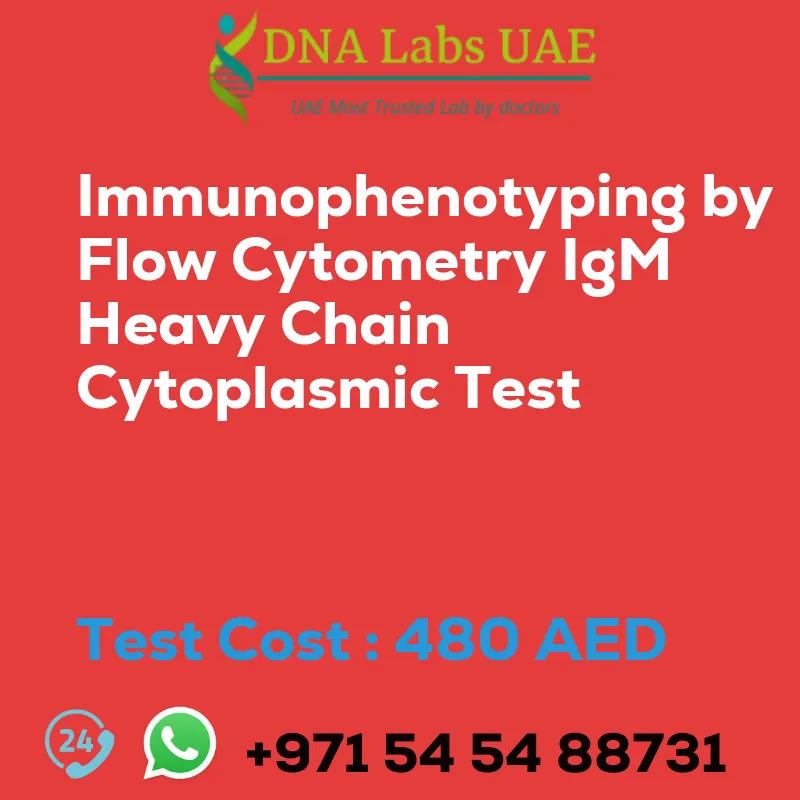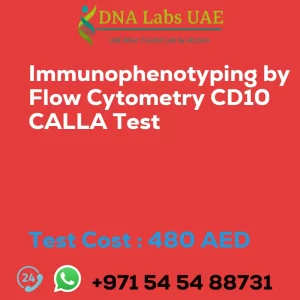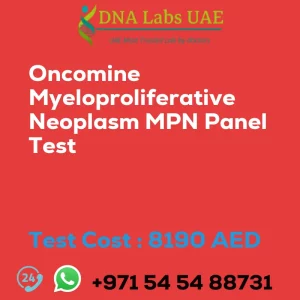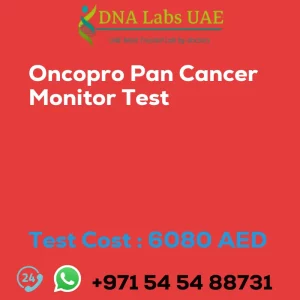IMMUNOPHENOTYPING BY FLOW CYTOMETRY IgM HEAVY CHAIN CYTOPLASMIC Test
Test Cost: AED 480.0
Symptoms and Diagnosis
The IMMUNOPHENOTYPING BY FLOW CYTOMETRY IgM HEAVY CHAIN CYTOPLASMIC Test is a specific flow cytometry assay used to detect and quantify the presence of IgM heavy chain proteins within the cytoplasm of cells. This test is particularly useful in the diagnosis and monitoring of certain B-cell malignancies, such as chronic lymphocytic leukemia (CLL) and mantle cell lymphoma (MCL), where abnormal cytoplasmic IgM expression may be observed. It can also help differentiate between different types of lymphomas and leukemias.
Test Components
- Sample Condition: 3 mL (2 mL min.) whole blood in 1 Lavender Top (EDTA) tube and 3 mL (2 mL min.) whole blood in 1 Green Top (Sodium Heparin) tube OR 2 mL (1 mL min.) Bone marrow in 1 Green Top (Sodium heparin) tube. Ship immediately at 18-22°C. DO NOT REFRIGERATE OR FREEZE. Specify time, date, and clinical details on the test request form.
- Report Delivery: Sample Daily by 9 am; Report Same day
- Method: Flow Cytometry
- Test Type: Cancer
- Doctor: Oncologist, Hematologist
- Test Department: FLOW CYTOMETRY
- Pre Test Information: Give brief clinical history.
Test Details
Immunophenotyping by flow cytometry is a technique used to analyze and characterize cells based on their surface and intracellular protein markers. IgM heavy chain cytoplasmic test is a specific flow cytometry assay used to detect and quantify the presence of IgM heavy chain proteins within the cytoplasm of cells.
During the test, cells are stained with fluorescently labeled antibodies specific for IgM heavy chain proteins. The cells are then passed through a flow cytometer, which detects and quantifies the fluorescence emitted by the labeled antibodies. By comparing the fluorescence intensity with appropriate controls, the presence and quantity of cytoplasmic IgM heavy chains can be determined.
The results of the IgM heavy chain cytoplasmic test can provide valuable information about the cellular composition and characteristics of a sample, aiding in the diagnosis and treatment of various hematological disorders.
| Test Name | IMMUNOPHENOTYPING BY FLOW CYTOMETRY IgM HEAVY CHAIN CYTOPLASMIC Test |
|---|---|
| Components | |
| Price | 480.0 AED |
| Sample Condition | 3 mL (2 mL min.) whole blood in 1 Lavender Top (EDTA) tubeAND 3 mL (2 mL min.) whole blood in 1 Green Top (Sodium Heparin) tube OR 2 mL (1 mL min.) Bone marrow in 1 Green Top (Sodium heparin) tube. Ship immediately at 18\u0192??22?\u00f8C. DO NOT REFRIGERATE OR FREEZE. Specify time, date and clinical details on test request form. |
| Report Delivery | Sample Daily by 9 am; Report Same day |
| Method | Flow Cytometry |
| Test type | Cancer |
| Doctor | Oncologist, Hematologist |
| Test Department: | FLOW CYTOMETRY |
| Pre Test Information | Give brief clinical history. |
| Test Details |
Immunophenotyping by flow cytometry is a technique used to analyze and characterize cells based on their surface and intracellular protein markers. IgM heavy chain cytoplasmic test is a specific flow cytometry assay used to detect and quantify the presence of IgM heavy chain proteins within the cytoplasm of cells. This test is particularly useful in the diagnosis and monitoring of certain B-cell malignancies, such as chronic lymphocytic leukemia (CLL) and mantle cell lymphoma (MCL), where abnormal cytoplasmic IgM expression may be observed. It can also help differentiate between different types of lymphomas and leukemias. During the test, cells are stained with fluorescently labeled antibodies specific for IgM heavy chain proteins. The cells are then passed through a flow cytometer, which detects and quantifies the fluorescence emitted by the labeled antibodies. By comparing the fluorescence intensity with appropriate controls, the presence and quantity of cytoplasmic IgM heavy chains can be determined. The results of the IgM heavy chain cytoplasmic test can provide valuable information about the cellular composition and characteristics of a sample, aiding in the diagnosis and treatment of various hematological disorders. |








